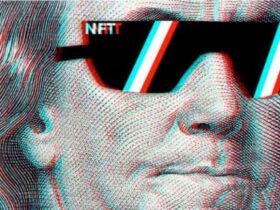Franklin Templeton is a global investment firm that recently launched one of the new Bitcoin ETFs in the United States. Notably, the company added laser eyes in its profile picture, demonstrating full support and commitment to Bitcoin (BTC).
However, further actions raised criticism of the tribe called Bitcoin maximalists, who first started using the laser-eyes meme. This happened after the giant showed enthusiasm with Ethereum (ETH) and Solana (SOL) in a recent series of posts on X (formerly Twitter).
Moreover, Franklin Templeton also mentioned a “massive potential” for other layer-1 blockchains besides Bitcoin, Ethereum, and Solana. Mentioning they would be monitoring and supporting these networks as they “grow and mature.”
Laser-eyes Bitcoin maximalists are mostly known for self-described and praised toxic behavior against the support of any other cryptocurrency that is not BTC. The meme means they have a laser focus on Bitcoin and Bitcoin alone, considering everything else a financial scam.
Franklin Templeton to support multiple cryptocurrencies
In the meantime, Franklin Templeton demonstrated a willingness to support solid projects in the cryptocurrency market, including BTC, but not limited to it.
Starting with ETH, the giant showed excitement about Ethereum’s Web3 ecosystem despite what they called a “midlife crisis.”
Second, the U.S. subsidiary backed Solana as a “powerful use case of decentralized blockchains,” impressed by the networks’ activity.
Additionally, Franklin Templeton’s X account manifested their vision for the future of blockchains and cryptocurrencies:
“We believe as blockchains improve in fees and performance, the potential use cases that are unlocked grow exponentially. Improving the economics and experience for the end user cannot be overstated.”
— Franklin Templeton (@FTI_US)

In conclusion, the investment giant has clarified that it will hold no bias toward a specific cryptocurrency. Franklin Templeton seeks real use cases and exponential growth in projects that solve problems, improving economics and user experiences.
















Leave a Reply